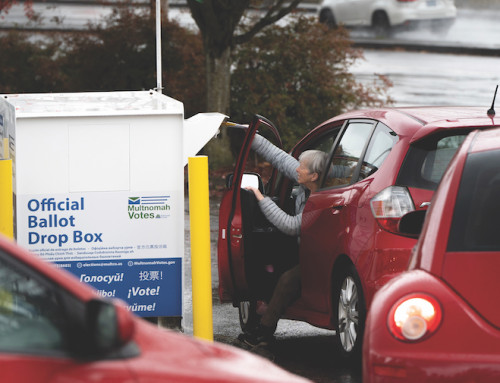A busy southeast Ohio county court’s days may be numbered as state lawmakers have submitted a bill to Gov. John Kasich calling for the establishment of a Perry County Municipal Court.
The effort, which began in 2013 with a request to the Supreme Court of Ohio for the court’s conversion from a part-time county court judgeship to that of a municipal court with a full-time judge, is the closest it’s been to realization since the idea was floated to the high court.
Perry County Court Judge Dean Wilson attributes growing volume of the court’s caseload to the county’s two largest municipalities — New Lexington, the county seat, and Somerset — ditching their mayor’s courts in 2013.
Just last year, the villages of New Straitsville and Shawnee also handed over their mayor’s court caseloads to the county court.
In the intervening years, the county court implemented a specialized docket — Perry County New Direction Drug Court — to address substance abuse, crime and recidivism of participants through intense supervision, treatment and judicial monitoring of participants.
Wilson said the program will endeavor to end the cycle of addiction participants by providing a balance between remedial intervention and judicial accountability.
“Our focus will be to improve the overall quality of life of the participants in our community and transforming them to become productive members of the community in all aspects of their lives by teaching them the skills necessary to overcome their drug dependency,” he said of the program, which currently has 15 participants.
Senate Bill 25, championed by Republican Sen. Jay Hottinger of Newark, would abolish the existing county court, effective Jan. 1, and create the municipal court.
The bill specifies the Perry County Municipal Court judge initially will be elected later this year and nominated only by petition.
“The Ohio Supreme Court review states that increased demands would be placed on the judge and court staff to maintain effective case management,” Hottinger said during sponsor testimony of the bill. “As a result, the review team concluded that the conversion of the part-time judgeship into a full-time judgeship ensured the goals of judicial efficiency and access to justice would be maintained and not compromised.”
Wilson echoed the senator’s remarks.
“With the court operating on a full-time basis as a municipal court with a full-time judgeship, cases would be able to be adjudicated in less time and the court would not struggle to meet the time constraints set forth by local and state rule,” the judge said. “Further, court patrons would be able to have their issues resolved in a timely fashion, which would result in less cost to the patron, swifter justice for victims, and more overall satisfaction.
He said the past few years have seen an increase in cases involving non-bondable offenses, which require offenders to appear in court before the judge.
“The caseload has increased from 2015, where there were 679 civil and small claims filed, 1,628 traffic cases and 777 criminal cases filed,” Wilson said. “The expected caseload for 2017 is to be in the neighborhood of 5,000 to 6,000 cases” — an increase of between 60 and 100 percent.
In addition to the misdemeanor jurisdiction of the court, he added, all preliminary hearings in felony cases are processed through the county court.
Separate provisions of SB 25 name the county’s clerk of courts the new clerk of the Perry County Municipal Court and call for the county’s prosecuting attorney to prosecute all violations of state law arising in Perry County in the new municipal court.
SB 25 cleared the Senate unanimously and the Ohio House of Representatives on a 92-1 vote. It was sent to the governor’s office for Kasich’s signature late last week.
It was co-sponsored by 20 legislators from both houses.










